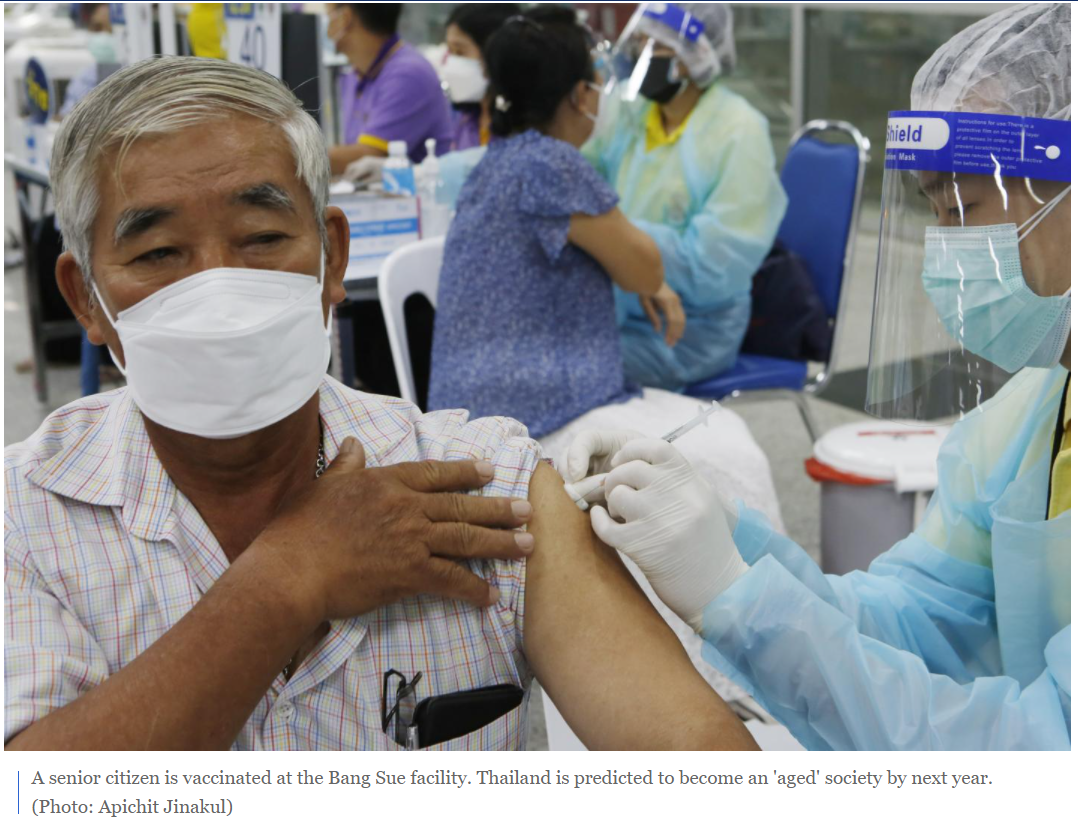Thailand: NESDC warns rapidly ageing society likely to hit economy
The increase in elderly among the Thai population and declining birth rate are expected to hinder the country’s future economic expansion, according to a new study by the government’s planning unit.
Jinanggoon Rojananan, deputy secretary-general of the National Economic and Social Development Council (NESDC), said its study, which uses the National Transfer Account (NTA) as a tool to design policies or measures to mitigate future impacts, found the higher elderly demographic is expected to cause the economy to contract by an average of 0.5 percentage points a year between 2023 and 2033.
NTAs provide a coherent accounting framework of economic flows from one age group or generation to another, typically for a national population in a given calendar year, said the NESDC.
Thailand has been classified as an “ageing” society since 2005, meaning 10% of the population is 60 or older. The NESDC expects Thailand to become an “aged” society next year, with people 60 or older set to account for 20% of the population.
This trajectory has Thailand becoming a “super-aged” society in 2031 or 2032, where those 60 or older make up 28% of the population.
According to the study, Thais will earn less from work than they spend on consumption over their lifetimes (an income deficit), tallying about 2.04 trillion baht a year, or an estimated 30,000 baht per person a year.
This income deficit is likely to increase to 2.16 trillion baht in 2023 and 2.57 trillion in 2033, which reflects that Thais still have relatively low savings levels, said the study.
Ms Jinanggoon said the public sector will have a greater fiscal burden because of changes in the population’s structure. The public health expenditure-to-GDP ratio is expected to increase by 12.7% by 2040, while the education expenditure-to-GDP ratio is expected to hike by 4.71%, she said.
The public debt-to-GDP ratio could rise by 5.41% in the same period as a result of a drop in the working-age population, according to the study.
Those aged 15 and older are generally considered working-age population.
According to the study, the working-age population needs to have an income worth a combined 7.7 million baht per person, once they retire, to take care of themselves, children and elderly in their families.
Over the next 10 years, it is expected there will be 72 children and elderly people for every working-age Thai, up from 54.8 in 2021.
The National Statistical Office reported Thailand’s birth rate hit a record low in 2020 with only 540,000 newborns, compared with 900,000-1,000,000 in the years 1993-1996.
It was also the first time newborns failed to exceed deaths, which tallied 563,650.
The fertility rate reached an extremely low 1.5 per woman in 2021, down from two in 1995, and lower than the threshold of 2.1 set by the World Health Organization.
The NESDC said solutions that increase income will be important to alleviate the income deficit and potentially enhance economic expansion.
Ms Jinanggoon said skills training for teenagers must cater to labour market demand and the direction of national development, while the income of the working-age population needs to be raised. Elderly participation in economic activities should be increased, she said.
Ms Jinanggoon said attractive salaries should be offered to highly skilled Thais currently working overseas, while rules should be eased to encourage skilled foreign workers to support Thailand’s long-term economic restructuring towards high-value industries.
The government is advised to strengthen household finances, including increasing household savings to reduce financial risks, particularly during emergencies, as well as retirement planning to reduce financial stress when income is reduced, said the NESDC. She said the government should work to achieve fiscal balance.
Source: https://www.bangkokpost.com/business/2282375/nesdc-warns-rapidly-ageing-society-likely-to-hit-economy


 Thailand
Thailand




